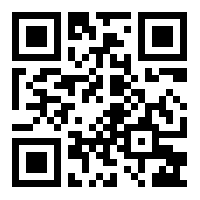We recently heard from one of our medical school partners, who has hundreds of students enroll in Early Alert. One of their students, who was not enrolled in Early Alert, recently died by suicide.
It was a painful to hear.
The death of a student is a tragedy, sending out a shock wave of pain, confusion, grief, frustration and even anger that impact a tremendous number of people – including, of course, the leaders of the community. You. Our heart goes out to you, who must sometimes face these tragedies and lead a community through them, as well as to the friends and families of the student who died.
We don’t know what would have happened if the student were enrolled in Early Alert. Maybe the student would have reported declining wellness. Maybe we would have been able to connect the student with support resources. Maybe that would have helped the student get better. Maybe not. But we do know that being connected with Early Alert would not have made things worse. And it would have given the student another chance at life.
Once you implement Early Alert, it’s critical to get as many students as possible enrolled in Early Alert. Our data suggest that when students decide whether or not to enroll in Early Alert, their wellness is not a factor. In other words, it’s not that students who are well are more likely to enroll, or that students who are distressed are more likely to opt out. This is good news, because it means that the considerations preventing students from enrollment can be overcome with relative ease. The main concerns students have about enrolling in Early Alert are about: (1) Privacy/Confidentiality, and (2) Time commitment. For this reason, it’s imperative to emphasize the confidential nature of Early Alert, the quick and unobtrusive nature of check-ins, and the outsized benefit to the student.
Some of our partner programs have enrollment rates of over 80%, and a few of over 90%. It can be done. The best way to get students to enroll is through face-to-face meetings, either in a group setting (most efficient) or in a one-on-one setting (most effective). Impersonal channels (posters, emails, social media) do not work. Group settings include orientation meetings, small learning groups, house meetings, town-hall meetings, etc. One-on-one settings include meetings with an academic success coach, a counselor, a financial advisor, or anyone else coming into contact with students expressing a higher level of need. You can meet with these folks, explain about Early Alert, and ask them to include Early Alert as part of their checklist of things to ask about. Simply giving these folks a piece of paper with the Early Alert QR code can help them enroll higher-risk students. Here are some things to say when introducing Early Alert to students:
- “Early Alert is a tool to help you monitor your own wellness, and can suggest support resources when you need them.”
- “Your communication with Early Alert is confidential. We do not have access to your messages. Early Alert will only break confidentiality in case of a serious wellness or safety concern.”
- “It takes just 4 seconds a week. You can unsubscribe any time.”
- “Most people using Early Alert stay subscribed for years, and talk about the benefit of being reminded to check in with themselves once a week.”
- “We expect everyone here to sign up. Please do this right now, by scanning the QR code.”
Media Coverage: Iron Mountain VA offers free wellness service for Veterans (WZMQ 19 News)


